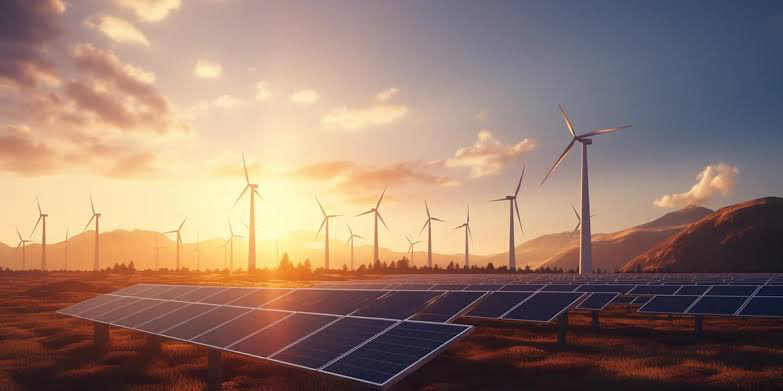KEY POINTS
- China’s investments in African energy infrastructure power hydro, oil, and renewables.
- African countries benefit from sustainable development and energy access.
- China’s financial support increases Africa’s energy capacity and independence.
China has notably increased its investments in Africa’s energy infrastructure, establishing itself as a critical player in the continent’s energy development. Through strategic initiatives like the Belt and Road Initiative (BRI), China has financed and constructed numerous energy projects across Africa, ranging from hydroelectric dams to renewable energy installations. These investments aim to address Africa’s energy deficits, boost economic growth, and solidify China’s influence on the continent.
Hydroelectric power: China’s role in Africa’s renewable energy shift
Hydropower projects have become a major part of China’s energy investments in Africa. A prime example is Uganda’s Karuma Hydropower Project, a 600 MW facility built on the Nile River. Constructed by China’s Sinohydro Corporation and financed by a $1.4 billion loan from the Export-Import Bank of China (Exim Bank), the project aims to increase Uganda’s electricity generation capacity and reduce the country’s reliance on thermal energy.
The Karuma project is one of several large-scale hydropower developments in Africa financed by China. Other prominent projects include Ethiopia’s Gibe III Dam and Angola’s Laúca Hydroelectric Project, both of which have been essential in increasing access to affordable electricity. These hydropower investments are in line with China’s strategy to support the development of clean energy sources as part of its broader commitment to sustainable development goals.
Renewable energy: China’s green investments in Africa
While China’s early investments in Africa’s energy sector were largely focused on fossil fuels and hydropower, recent years have seen a shift towards renewable energy. During the Forum on China–Africa Cooperation (FOCAC) held in Beijing in 2024, China announced plans to develop 30 renewable energy projects across Africa. This marked a significant shift in its investment approach, reflecting its commitment to green energy transition.
The renewable energy projects span solar, wind, and geothermal energy, with the goal of enhancing Africa’s access to affordable, clean, and sustainable energy sources. Countries like Kenya, Morocco, and South Africa have already benefited from China’s renewable energy expertise. For instance, the construction of large-scale solar farms and wind power plants in these countries has reduced their dependence on fossil fuels while supporting their climate change commitments.
This shift to renewables is part of China’s larger effort to “green” its overseas investments under the Green Belt and Road Initiative. By supporting Africa’s energy transition, China is not only addressing global environmental concerns but also positioning itself as a leader in clean energy finance.
Oil and Gas exploration: China’s continued stake in Africa’s fossil fuels
Despite its push for renewables, China continues to invest in Africa’s oil and gas sector, which remains a vital part of the continent’s economy. In May 2024, China’s state-owned energy giant CNOOC (China National Offshore Oil Corporation) signed exploration and production contracts with Mozambique’s energy ministry and ENH (Empresa Nacional de Hidrocarbonetos), the country’s national energy company.
These contracts cover five offshore blocks, spanning over 29,000 square kilometers in water depths ranging from 500 to 2,500 meters. The move underscores China’s continued interest in Africa’s rich oil and gas reserves. Mozambique, with its significant natural gas deposits, has become a key player in Africa’s gas export market, and China’s involvement strengthens its energy security.
Additionally, China’s engagement in Angola, Nigeria, and Sudan’s oil sectors demonstrates its long-term commitment to securing stable energy supplies for its rapidly growing economy. The exploration of new oil fields ensures that China maintains a steady supply of natural resources while also diversifying its energy sources.
Financing energy projects: Loans and debt considerations
China’s financial support for African energy infrastructure is a key driver of its influence on the continent. In 2023, China’s lending to Africa rose to $4.61 billion, marking the first increase since 2016. This shift highlights China’s renewed interest in African development and its focus on green investments.
Unlike previous loans that were tied to large, debt-heavy infrastructure projects, recent financing has been more targeted. Loans have been directed towards renewable energy projects and partnerships with African financial institutions. This approach mitigates risks associated with Africa’s rising debt levels and provides a pathway for sustainable, growth-oriented development.
However, China’s loans to African nations have sparked debate. Critics argue that the loans may contribute to “debt dependency” for many African countries. The repayment terms of these loans, often seen as opaque, have prompted calls for more transparency in debt negotiations. On the flip side, Chinese officials and African governments argue that the financing is critical to building infrastructure that would otherwise remain underdeveloped.
The balance between debt sustainability and development remains a key point of discussion in Africa-China relations. While many African nations rely on Chinese loans to address their energy deficits, the long-term economic impact of debt repayments is an issue that policymakers must navigate.
Strategic implications of China’s role in Africa’s energy infrastructure
China’s investments in African energy infrastructure are more than just economic transactions—they are part of a broader geopolitical strategy. By financing and constructing vital energy projects, China strengthens its diplomatic and economic ties with African countries. This relationship gives China leverage in international forums and boosts its geopolitical influence on the continent.
For African nations, the benefits of these investments are evident. Increased energy capacity supports industrialization, boosts employment, and facilitates the development of export-oriented industries. Countries like Ethiopia, Kenya, and South Africa have experienced faster economic growth as a result of access to stable and affordable energy.
However, these investments are not without consequences. By becoming a major financier of energy infrastructure, China wields significant influence over the policies of its African partners. Critics argue that this influence could lead to less accountability and reduced bargaining power for African nations in trade and diplomatic negotiations.



